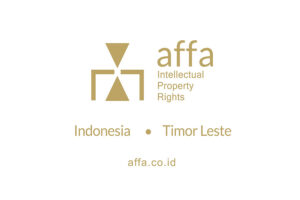Indonesia and South Korea have enjoyed a fruitful relationship in the past five decades. As both countries mark the 50th anniversary of trade relations, transactions between them have reached USD30 billion in 2022. This collaboration makes South Korea the fourth-largest importing country to Indonesia.
Although this relationship has not yet reached the scale of each country’s respective trade ties with regional powerhouses like China and Japan, significant advancements have been achieved in recent times.
Noteworthy is the official implementation of the Indonesia-Korea Comprehensive Economic Partnership Agreement (IK-CEPA) on January 1, 2023. This agreement activated a host of new provisions that were originally proposed in 2012.
It eliminated 95.5% and 92% of import duties on Indonesian and Korean products, respectively, enhanced business mobility and made pledges to escalate Korean investment in Indonesia, and eased further bilateral trade.
A representative from Indonesia’s Co-ordinating Ministry for Investment (BKPM) has indicated that, based on these new commitments, Korean investment in Indonesia is projected to see an average annual growth rate of 15.59% in the next five years.
OPPORTUNITIES & KEY STATISTICS

Managing Partner
AFFA Intellectual Property Rights
Jakarta
Tel: +62 812 8700 0889
Email: emirsyah.dinar@affa.co.id
Protecting intellectual property (IP) in Indonesia is now crucial for South Korean companies looking to start operations or expand in the country, given Indonesia’s rapidly growing market, with a burgeoning middle class and a significant consumer base with a soft spot for South Korean products and services.
The potential for market penetration and profit is substantial, but so are the risks of IP infringement, counterfeiting and piracy if strong action is not taken against them.
According to the World Intellectual Property Indicators 2022 report from the World Intellectual Property Organsation (WIPO), there were 376 patent applications from Korea to Indonesia in 2021, along with 2,085 trademark applications, putting Indonesia in the top 10 of countries receiving such applications from South Korea.
Given that the legal landscape for IP rights (IPR) is steadily improving in Indonesia, failing to secure these rights may result in missed opportunities and could hinder a company’s ability to grow and innovate in a market that is becoming increasingly important in the global landscape.
Here is a summary of key improvements and general practice in IP protection in Indonesia.
TRADEMARKS
- Trademarks (as well as geographical indications) are regulated under the Trademark Law. Registration is carried out on a first-to-file basis, and registered trademarks are valid for 10 years, with effect from the registration filing date. While no prior use requirement is essential for the purposes of application and registration, it is advisable always to use registered trademarks to avoid non-use cancellation actions filed by any third parties. Furthermore, Indonesia adopts a strict classification system on its e-filing platform. Any goods or services that do not exist in the system may not be filed – hence, prior checking is advised.
- It takes significantly less time for a trademark to be registered due to a streamlined process by the Indonesian Trademark Office. It now takes about 11 to 13 months from filing to registration, assuming there is no opposition, provisional refusal or final rejection.
- The e-filing system only allows certain goods/services to be filed. If the goods/services filed in South Korea are not available in the Indonesian e-filing system, then in practice it will still be possible to enquire of the Trademark Office if they can be added.
- The new policy makes notifications for Automatic Trademark Renewal, License and Excerpt Approval to be issued instantly.
- In 2022, there were 120,216 trademark applications filed in Indonesia.
PATENTS
- Indonesia has adopted the 31-month PCT national phase deadline, or within 12 months from the date of filing priority application through the Paris Convention route. By law, the applicant can still provide the Indonesian translations of the specifications, figures, claims and abstract within 30 working days from the date of filing.
- Subject to registration, conventional patents provide for the grant of exclusive rights if the patent can fulfil the following criteria:
-
- Novelty;
- Inventive steps; and
- Commercial application.
-
- Whereas simple patents will be granted provided that they meet the following criteria:
-
- Novelty;
- Development of known products or processes;
- Possession of practical uses; and
- Commercial application.
-
- Conventional patents can cover both product and process patents. Once registered, conventional patents are valid for 20 years from the filing date, whereas simple patents are only valid for 10 years from the filing date.
Notably, there are inventions that cannot be registered, such as aesthetic creations, schemes, business methods, computer programs per se, presentations of information, and discoveries that are considered to be new uses for known products or new forms of existing compounds that do not result in a significant increase in efficacy and exhibit differences in related chemical structures known from the compounds. - The Indonesian Patent Office is still actively eliminating the backlog. In some cases we have seen some patent applications filed in 2022 have received the first examination reports issued by the examiners.
- In 2022, there were 14,062 patent applications filed in Indonesia – more than half were from overseas.
COPYRIGHT
- The Copyright Law protects various intellectual property assets in the realms of art, science and literature. The protection period starts from the first date of publication and depends on the nature of the protectable work. For instance, software and other computer programs are protected for 50 years from their first publication date, whereas songs and books are protected for up to 70 years after the death of their creator.
- The Copyright E-recordation system issues a notification as soon as the application has been filed.
- In 2022, there were 117,083 copyright records filed in Indonesia, mostly filed by Indonesian individuals/entities.
INDUSTRIAL DESIGNS
- While the Industrial Design Law has yet to be amended since its enactment in 2000, in practice it takes a shorter time for filing up to registration, usually not more than 12 months if there are no rejections.
- Indonesia still adopts absolute novelty grounds to issue rejections – applicants are warned to be mindful not to disclose the designs until they are filed in Indonesia.
- In 2022, there were 4,877 industrial design applications filed in Indonesia.
GENERAL IMPROVEMENTS
- While the e-filing system from time to time experiences technical issues, the Indonesian IP Office is holding regular meetings with users to hear opinions and feedback about the system, and how the IP Office can use this feedback to make incremental improvements, which is very much appreciated.
- While IP infringements are still rampant, the Indonesian IP Office and other local and international stakeholders have run solid educational campaigns on social media platforms in order to get the public to become more IP savvy.
- Indonesian e-commerce sites have become proactive in taking down listings that have infringed registered IP. In general, it takes 14 days from the date of report for them to take down the listings on request.
SUMMARY
As Indonesia and South Korea commemorate five decades of trade relations and witness transactions exceeding USD30 billion in 2022, the implementation of the IK-CEPA solidifies their collaboration. For South Korean companies, safeguarding IP is paramount in Indonesia’s thriving market, where a growing number of consumers embrace South Korean products and services.
With rising patent and trademark applications, and improvements in IP protection processes, securing IPR is essential for maintaining a competitive edge in this dynamic market. Happily, the Indonesian government is actively addressing intellectual property issues and fostering an innovation-friendly environment, along with robust IP protection.
AFFA INTELLECTUAL PROPERTY RIGHTS
15/F Graha Pratama Building
Jl. MT. Haryono Kav. 15
Jakarta – 12810, Indonesia
Tel: +62 21 8379 3812
Email: affa@cbn.net.id
www.affa.co.id































